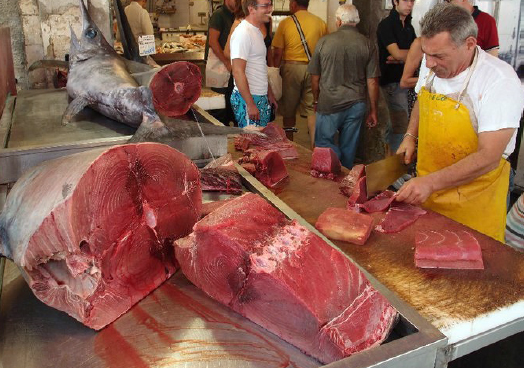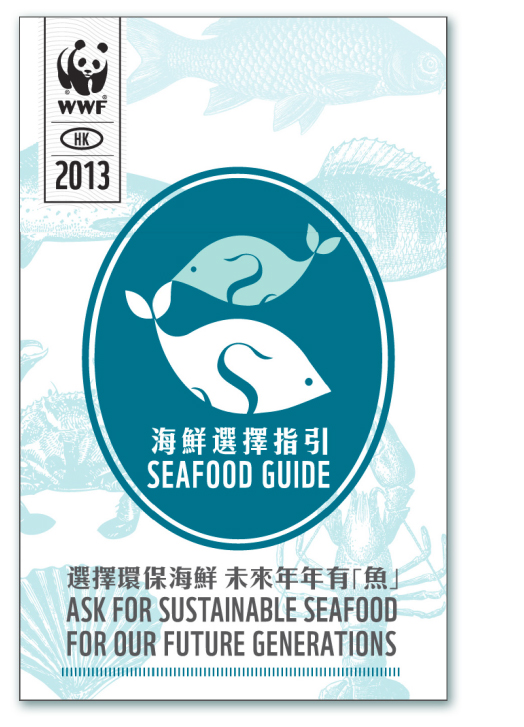
Save the Ocean: Consume Sustainable Seafood
Eco-friendly Menus for the CUHK Golden Jubilee
The banquets celebrating the Chinese University's Golden Jubilee this year show that a little forward planning and communication with caterers can do a lot towards helping our planet. In the dinner in honour of the honorary fellows for instance, the organizer—the Communications and Public Relations Office (CPRO) of CUHK, requested the caterer to adhere to WWF's Seafood Guide and to increase upping the proportion of vegetable dishes, and avoid using beef as an ingredient—efforts which significantly reduced the meal's carbon footprint. The office will also design an eco-friendly menu for the 50th Anniversary gala dinner, one of the Golden Jubilee's feature events.
No more fish by 2048?
Our appetite for seafood and industrial fishing practices have pushed us dangerously close to the ocean's ecological limits. Modern fishing employs gigantic ships with state-of-the-art fish-finding equipment and enormous fishing gear that are trawled through the ocean—vessels whose capacities far exceed nature's ability to replenish marine life lost. According to Greenpeace, populations of top predators, including menu regulars such as tuna, swordfish, cod and flounder, are being depleted at an alarming rate. Some scientists believe that all commercially fished seafood species will collapse by 2048 if we don't change our practices.
Over-fishing upsets the structure of marine ecosystems, resulting in profound changes that affect those whose livelihoods depend on the sea. Not to mention our diet—imagine Cantonese cuisine without steamed fish and blanched shrimp.


Sustainable seafood guide
As consumers, we can help restore the ocean's resources by avoiding seafood produced in unsustainable ways. When buying canned tuna, for example, we can choose 'pole-and-line' varieties. When having sushi, opt for albacore tuna, rather than yellowfin or bluefin tuna. Farmed scallops are more sustainable than ones caught in the wild.
In Hong Kong, a growing number of companies, in addition to CUHK, have opted to serve sustainable seafood at official meals, and a few hotels have launched ocean-friendly banquet menus.
Tips for banquet planners
The following may be of help:
- Refer to WWF's Seafood Guide for which items to choose, think twice about, and avoid
- Avoid beef which has a high carbon footprint
- Provide more vegetarian, organic or local produce options
- For Chinese banquets, opt for a six-course menu over the regular eight-course menu
- Where appropriate, reduce portions
- Avoid a buffet spread if alternative arrangements are possible
- Do not provide bottled water
- Provide reusable cutlery, dishware, napkins and linens
For more tips, see the University's Guidelines for Sustainable Event Planning and Management.
The Seafood Guide
WWF's Seafood Guide for Hong Kong lists over 70 species of commonly found seafood under 'Recommended', 'Think Twice' or 'Avoid' categories. Some species, like bluefin tuna, is facing extinction globally and should not be consumed at all; others may be abundant in one part of the world and endangered in another, depending on the fishing practices involved. And contrary to popular belief, farmed seafood may not always be more environmentally-friendly than wild-caught varieties. In many cases, fish farms generate a lot of pollution, and often farmed stocks can only be sustained by catching juvenile species from the wild.



